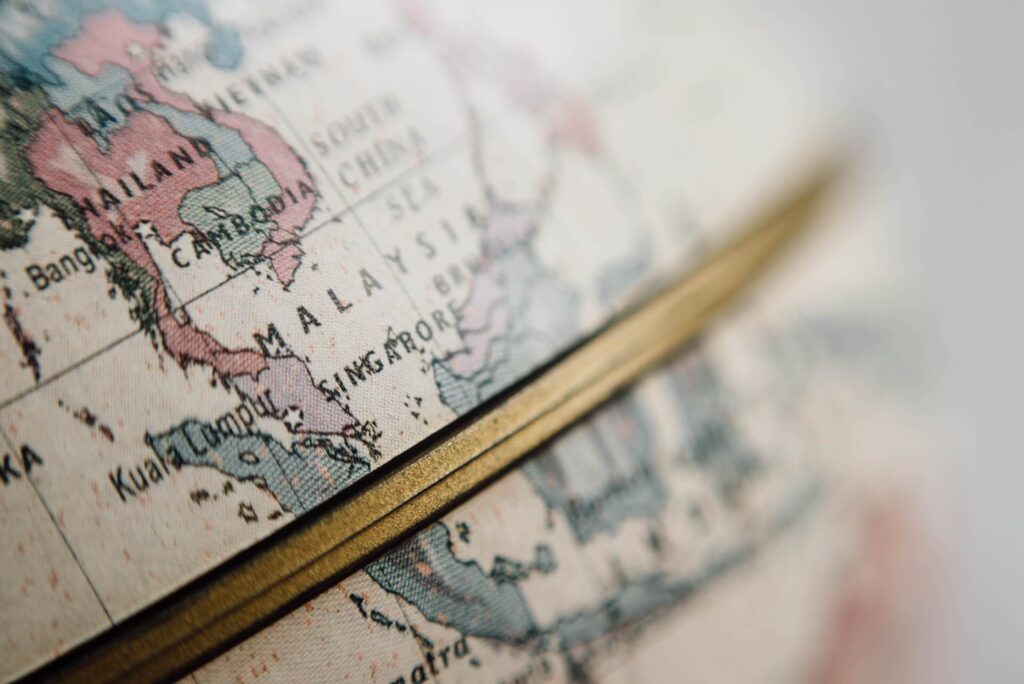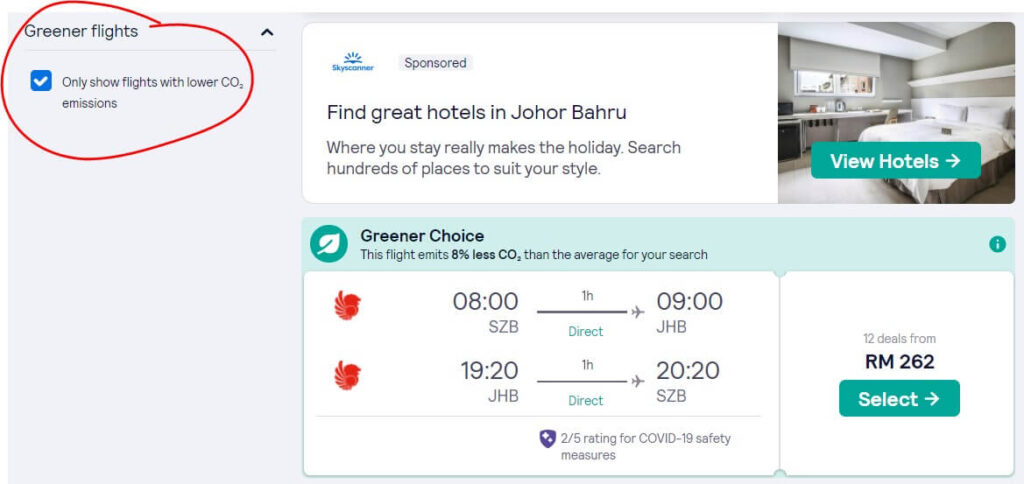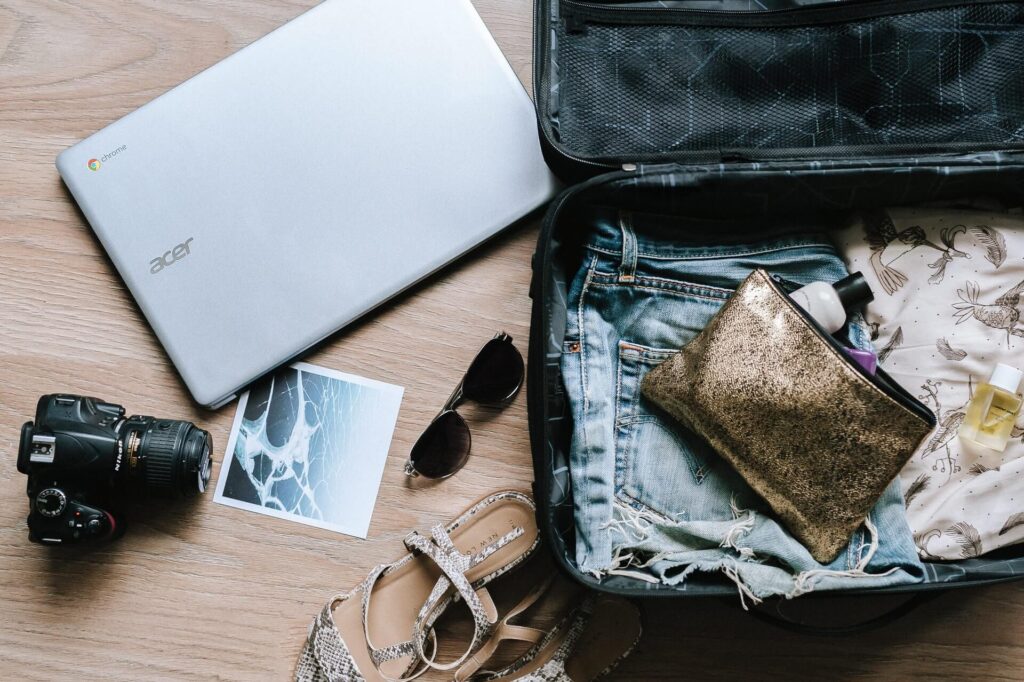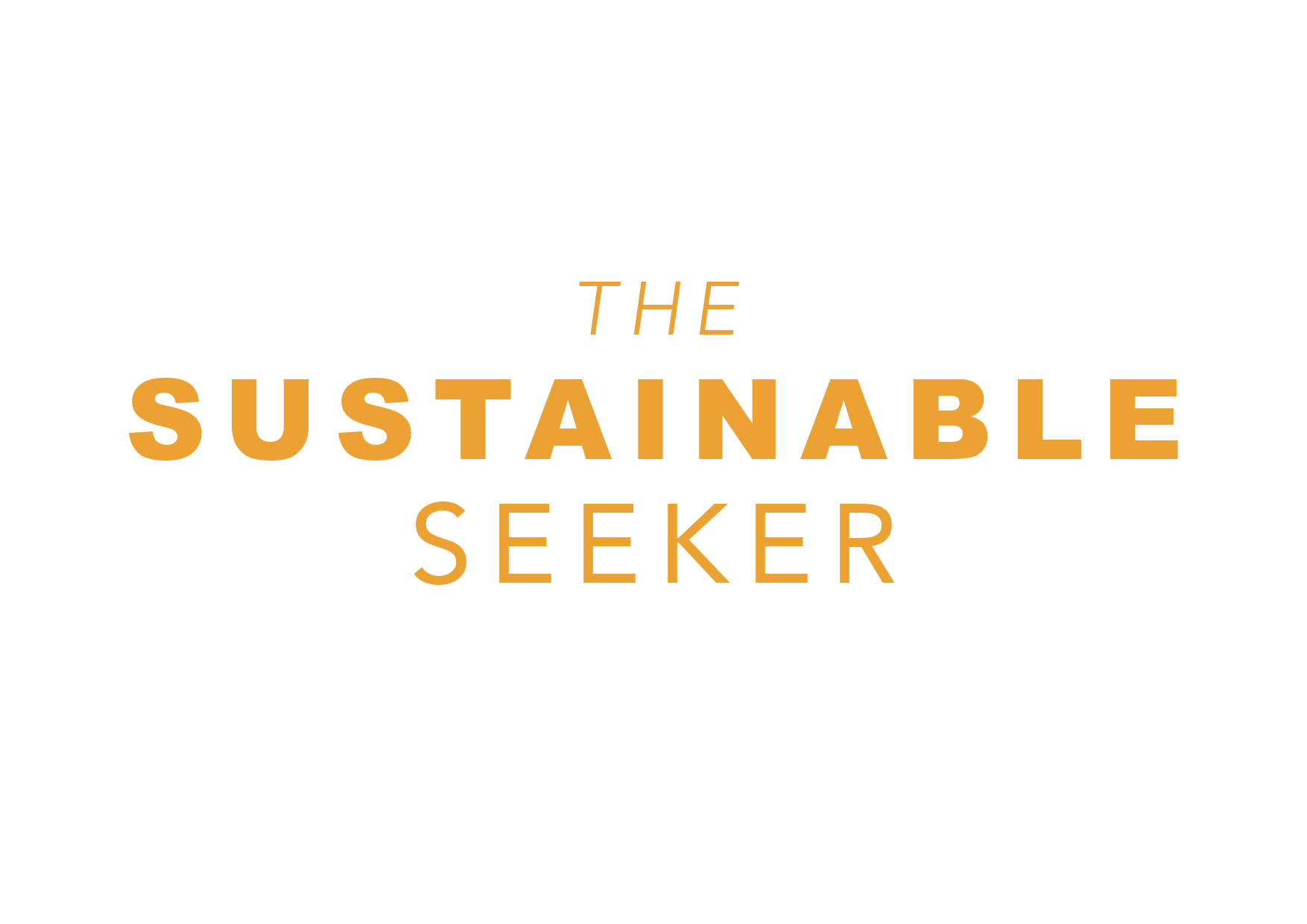Eco Friendly Travel Kit: How To Travel In An Eco Friendly Way!
Packing an eco friendly travel kit is one of the steps to travelling responsibly. Just change a few things in your bag and you’ll have the eco friendly kit ready.

As the world (and also we) age , it’s time for us to think about our environmental footprint.
Every time you check into a hotel room, observe how much waste is created overnight.
- The plastic bottles in the mini bar,
- plastic toothbrush
- the plastic shampoo
- body wash bottles
These are all the recyclable waste that should be disposed of responsibly.
Let’s find out how we can make the world a more sustainable place while you travel.
13 Best Eco Friendly Travel Kit Items
- Personal hygiene products
- Reusable coffee cup or water bottle
- Foldable backpack
- Reusable shopping bag
- Reusable produce bag
- Sandwich/snack bag
- Spork/utensil set
- Reusable straw
- Food container
- Cloth napkin
- Packing cubes
- Solar powered charger
- E-books
DISCLOSURE
Some of the links on here are affiliate links and I may earn if you click on them, AT NO EXTRA cost to you. Hope you find the information here useful! Thanks.
What Is An Eco Friendly Travel Kit?
An eco friendly travel kit should include reusable and recyclable non-toxic items you bring on a holiday.
Many organic brands are sharing the same values and care for our planet. These brands produce cruelty-free, child-labour free, low carbon, zero/low chemical and durable products for your everyday use.
To save you time researching for brands that support you as a responsible traveller, we have listed some with cool sustainable missions:
How To Move Toward A More Sustainable Future
We tend to overlook the fact that our beauty products are one of the biggest contributors to our plastic packaging waste. Shampoo, conditioner, shower gel, facial wash, you name it – these are all essentials we ashamedly throw away once we’re done with them.
There’s also the possibility for some of us to dispose of our almost finished shampoo bottle just because it adds weight to our backpack. But then again, we can’t reverse our actions but there are certainly chances for us to make changes for a better future.
If you’ve read until this part, congratulations, you still have time to make a change!
It’s important to understand that being environmentally friendly goes beyond products and essentials per se. With that being said, don’t rush out to the store just yet to get everything organic.
It’s all about the choices you can make in your day-to-day life to lessen your impact on the environment.
List Of Best Eco Friendly Travel Kits
While it feels wonderful knowing you’re contributing to preserving the health of our planet, packing your own eco friendly travel kit can also bring so much fun!
Don’t look too far as in this post, we have prepared a list of some affordable and lightweight items for your own eco friendly travel kit:
1. Personal Hygiene Products

- Dr. Bronner’s Pure-Castile Bar Soap from $9.10
- J.R LIGGETT’S All-Natural Shampoo Bar from $11.50
- Eco-Friendly Bamboo Charcoal Toothbrushes from $6.13
- Bite toothpaste bits from $12
- Eco friendly cosmetics bag from $7.18
- Eco friendly makeup bag from $6.82
- Sustainable Travel & Living eco toiletry bag from $6.05
- OrganiCup menstrual cup from $29.23
- Reusable makeup wipes from $14.33
- ULTA Beauty organic sun cream from $24.99
- The Summer Chaser eco friendly travel towel from $53.34
- Repel deet-free insect repellant from $9.20
- Natural stain remover laundry bar from $13.81
2. Reusable Coffee Cup Or Water Bottle
- Ecoffee reusable cups from $6.14
- Vapur flexible water bottle from $9.99
3. Foldable Backpack
- ChicoBag compact recycled backpack from $35.81
- Baggu foldable backpack from $46
4. Reusable Shopping Bag
- Saffron & Serai batik tote bags from $25.23
- Baggu reusable bags from $12
- Flip & Tumble eco friendly bags from $13.30
5. Reusable Produce Bag
- Flip & Tumble from $13.30
- AivaToba from $15.34
6. Sandwich/Snack Bag
- rePETe snack bags from $15.99
- Stasher Silicone food bag from $11.99
- Zip Top snack bag from $10.22
7. Spork/Utensil Set

- To-Go Ware Bamboo Utensils from $9.98
- Devico Portable Utensils from $14.31
8. Reusable Straw
- Devico Portable Utensils from $14.31
- StrawSleeves Zero Waste Warrior Straw Kit from $17.32
9. Food Container
10. Cloth Napkin
- COTTON CRAFT Classic Cotton Napkins from $18.41
- Un Paper Reusable Napkins from $36.82
11. Packing Cubes
- Compression Packing Cubes from $36.83
12. Solar Powered Charger
- BigBlue 3 USB Ports 28W Solar Charger from $71.60
13. E-Books
- Kindle from $95.68
You may notice that most of our everyday products contain palm oil.
With the increasing demand, landowners will demolish palm oil trees and remove orangutans and other wildlife in Asia.
We can make a difference by not supporting products containing palm oil so look out for these ingredients as they are other names for palm oil:
- Glyceryl stearate
- Lauryl sulphate
- Palm Kernel Oil
- Palmitate
- Sodium Laureth
What Is The Most Environmentally Friendly Way To Travel?

The first step to travel in an environmentally friendly way is by reducing your carbon footprint. Reconsider how much and how often you travel.
Most importantly, travelling in an environmentally friendly way requires a shift of mindset and some sacrifice.
Drive Less
If you’ve made up your mind for a full commitment to this, stop using a car.
You can:
- Take a train,
- bus or better yet,
- ride a bike.
But let’s be real.
There will be times you need to use the car. So, when you do, here are some tips to make your trip more climate-friendly:
- Drive with a steady speed, imagine you have an egg under your foot.
- Service your car regularly to maintain its efficiency.
- Keep tires pumped correctly to reduce emissions as low tire pressure will affect your fuel economy.
- Cut down on using air conditioning as it can make emissions creep up.
- Save gas by using cruise control on long drives.
- Don’t weigh your car down with extra things that you don’t need on your trip.
- Carpool, to split emissions between the number of people in the car.
Fly Less
It’s impossible for most of us to not fly at all so what we need to do is, fly while reducing CO2 emissions.
Here are some tips to make it work:
- Avoid flying too many short distances in a row as short-distance aviation causes the most pollution per kilometre.
- Take direct flights instead of having stopovers because long journeys mean more kilometres, more fuel, and more carbon emissions.
- Offset your carbon emissions for free with Skyscanner or FlyGRN. Here’s how:
Say you’re using Skyscanner. Tick the box under ‘Greener Flights’ to see flights with lower carbon emissions and a list of ‘greener flights will appear’.’

- Fly economy class – economy fliers create smaller carbon footprints than business class fliers as the business class takes up lots of physical space, while economy class carries more people (more efficient).
- Pack light so you’ll help the plane use less fuel.
If these options are not financially friendly for you, fret not!

You can always take the train. There are many benefits to taking a train that you might not realise such as:
- Trains use less energy.
- You can save money – train tickets are usually cheaper.
- Energy and time efficient – no hassle of finding a parking spot, you can kick back, relax and enjoy the scenery or even get work done.
- It’s faster – you don’t have to deal with going through security or waiting for your luggage.
In summary, trains outdo both flying and driving combined in terms of capacity, mobility, convenience, speed, safety, efficiency, energy consumption, cost, carbon footprint and the list goes on!
Stay Close To Home
It’s very likely for some of us to have never visited the museums or galleries in our city.
So why not start this weekend?
If you’re an outdoorsy person, you can search for local adventures on Facebook or Instagram – there are many local communities starting group hikes and the likes.
These are among the greenest forms of travel as you don’t necessarily need to fly or drive. Even a small adventure can feel a world away!
Eat For A Lighter Footprint
Another great way to make your trip sustainable and environmentally friendly is by eating vegetarian or vegan.
Even if you’re an avid meat-eater, who knows, this might trigger the urge to change to a healthier lifestyle.
Here are some suggestions you can consider:
- Pack some nuts or you can get fruits from street stalls and put them in your reusable snack bag.
- Copy what the local people order as a way to be adventurous and discover meals you’ve never heard of.
- Try not to select the ‘breakfast included’ choice when booking your accommodation because they can be an unnecessary indulgence and will go to waste. Instead, have your meals at the roadside stalls.
- If you’re someone who can’t tolerate greens at all, choose chicken or sustainably sourced seafood instead. Unless you feel the strong need to try (not eating meat), tofu and nuts are among the most sustainable options.
Tips For Travelling In An Eco Friendly Way

1. Bring Eco Friendly Products
Plastics take 500 years to biodegrade so bring a couple of reusable shopping bags with you when shopping at the local markets.
Pack your organic personal hygiene products and keep them in the eco friendly toiletry bag. You may refer to the list above for the best ethical travel products to start travelling in an environmentally friendly way.
2. Pack Only What You Need
The lighter you pack, the lesser carbon emissions the plane will produce. Your back will thank you too!
3. Travel Local
If you’re not keen on taking the bus or train, you can also use Lyft, Grabcar or Uber when travelling. No doubt these are private transportations but at least you aren’t contributing to more carbon emissions by driving your car.
4. Try Overland Travel
Overlanding is about exploration, so the goal is to see and learn about our world. Your carbon footprint will be a tonne lighter when you skip one long flight.
5. Make The Hotel Your Home
No, this has nothing to do with decorations but your actions. Don’t request for clean towels when it’s not necessary and turn off all electrical appliances when you go out. Refill your water bottle instead of requesting more plastic drinking water bottles.
6. Offset Your Journey
World Expeditions has a wide range of offset adventures that directly support renewable energy and reforestation projects across the world.
Their itineraries are already low carbon-emitting in terms of transport and accommodation whilst taking into account traveller safety.
7. Follow The Path
If your plans include hiking, be mindful when exploring the trails. Stick to the marked paths to avoid trampling on protected or endangered plants and don’t approach any animals you bump into.
8. Three Is A Crowd
If you travel with a tour operator, choose one that’s environmentally responsible e.g. taking a small group with them to avoid causing more environmental impact. While you’re at it, find out how the operator gives back to the community in the region.
Here’s a list of eco friendly tour operators recommended for you:
9. More Greens, Less Meat
The meat industry is the world’s biggest polluter, so you let’s not contribute to this by keeping a very minimal intake of beef throughout your trip. Better still, eat less or no animal products at home, too.
10. Say No To Touristy Things With Wild Animals
Posing for a photo with the tigers is never cool. Riding elephants is the worst. Skip the zoos and animal theme parks.
In case you didn’t know, the tigers are often drugged and their cages are terribly maintained. Don’t fall trap into claims saying the animals are treated well, will be released into the wild or the species is protected.
These animals are called wildlife for a reason.
Transitioning yourself into a sustainable traveller doesn’t have to happen overnight.
It can be as easy as removing one plastic item from your eco friendly travel kit . This effort can make a pretty huge difference to the world if every single traveller chooses to do so.
Take time to evaluate all your hygiene and beauty products in plastic packaging.
Switching them all to the eco friendly ones can drastically improve plastic footprint (which actually makes you more sext. FACT!)
When travelling responsibly has become a habit, hopefully, you’ll start making conscious decisions at home too!
